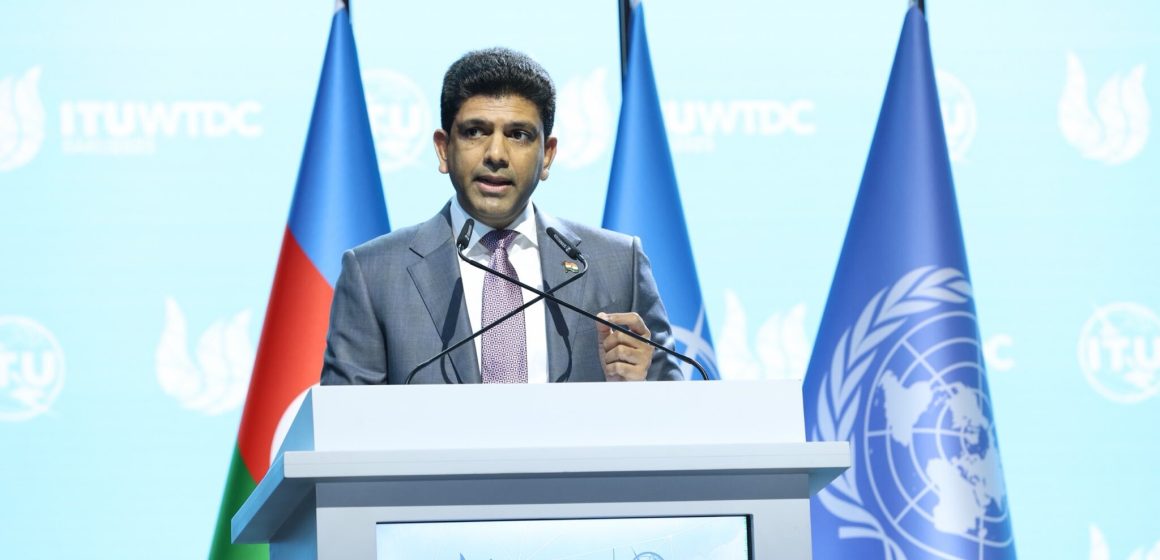The junior communications minister spotlighted India’s safety systems, such as Sanchar Saathi and the Financial Fraud Risk Indicator, which blocked 30 million fraudulent mobile connections and stopped 6.6 million financial fraud attempts.
Reaffirming India’s vision for a sustainable, secure and inclusive global digital future at a global forum, Union Minister of State for Communications, Dr Pemmasani Chandra Sekhar, emphasised that cybersecurity is a shared global responsibility, urging nations to collaborate on resilient, cross-border cybersecurity frameworks.
Addressing the high-level Segment of the World Telecommunication Development Conference (WTDC-25) in Baku on Monday, Pemmasani observed, “Cybersecurity is no longer a national concern but a global imperative, and India is committed to building trusted, collaborative frameworks that safeguard every digital user.”
He highlighted India’s citizen-centric safety systems, such as Sanchar Saathi and the Financial Fraud Risk Indicator, which have collectively blocked 30 million fraudulent mobile connections and prevented 6.6 million financial fraud attempts.
Organised by the International Telecommunication Union’s Development Sector (ITU-D), the World Telecommunication Development Conference (WTDC) identifies global priorities for expanding and improving telecommunications and digital connectivity.
Reiterating India’s civilizational guiding principle of Vasudhaiva Kutumbakam (the world is one family), he highlighted India’s deep partnership with the ITU, dating back to 1869. Calling for global digital unity, Pemmasani reinforced India’s commitment to partnering closely with all ITU member states.
“Just as rivers grow mightier when they flow together, India stands ready to join hands with the global community to build a digital ecosystem that empowers people, protects our planet, and ensures no nation is left behind,” he said.
Showcasing India’s unprecedented digital transformation, he noted that the country has emerged as one of the world’s most connected societies, empowering 1.2 billion telecom subscribers, 1 billion internet users, and 1.4 billion digital identities.
“With some of the world’s lowest data tariffs, among the highest data consumption, and a digital infrastructure that enables 46 per cent of global digital transactions, India has proven that accessibility, affordability, and scale can advance together,” he said.
He underlined that India’s $4.8 billion last-mile 4G expansion and the world’s fastest 5G rollout, now covering 99 per cent of the country’s districts, have set new global standards.


